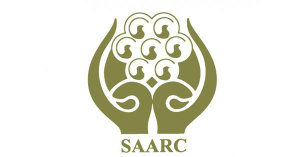During his participation at a conference on “Regional Economic Cooperation and Connectivity in South Asia,” organised by Sustainable Development Policy Institute (SDPI) during 9-11 December 2014, in Islamabad, Pakistan.
Published in The Express Tribune, 13 December 2014.
Integration, cooperation: Regional connectivity vital for trade, say experts
ISLAMABAD: Academics, diplomats and economic experts underlined the need for trust building measures, greater cooperation and connectivity among South Asian states to benefit from the vast potential of trade and compete in the regional as well as global markets.
Without the physical connectivity in the region all the big plans will not take place and there will be no emerging opportunities. “It’s time to think really deep,” they said.
The experts were sharing their thoughts at a session on “Regional Economic Cooperation and Connectivity in South Asia” of the three-day sustainable development conference that concluded on Thursday. The event was organised by Sustainable Development Policy Institute (SDPI).
If the industry is not exposed to competitors, there will be no innovation, creativity and growth in South Asia, said the experts.
Tariq Karim, the High Commissioner of Bangladesh to India, said that the failure of South Asian Association for Regional Cooperation (Saarc) in integrating the member states till now was the lack of centripetal force.
“The only reason why the European economies could revive after complete destruction in World War-II was the centripetal force by the two most powerful economies of Germany and France,” he observed.
The political cooperation, in his views, precedes the economic cooperation like the ignition and fuel to drive the car.
Karim said the European economies initiated their cooperation in the domain of energy, followed by other avenues. “The region needs to strengthen its bilateral ties which will lead to trilateral cooperation to the desired regional cooperation,” he said.
Dr Abid Suleri, Executive Director of the SDPI said that the Saarc region was still struggling towards integration due to lack of trust from the start whereby the smaller countries believed that it was an attempt to empower India in the region.
The two powerful countries of the region could have taken a mature stance than just a handshake at the recent Saarc event, he remarked.
Haroon Sharif of the World Bank said that the entire region has got a unique opportunity to realign in the changing political dynamics of Asia.
From the perspective of Pakistan, it can seize the moment to double its trade with Afghanistan.
“Pak-Afghan trade can easily be taken from $2 billion to $5 billion in three years with certain steps taken by both the countries.”
Sharif said the hurdles lay in three sectors – government, international partners, and private sector. He added that the future lies in private sector as channels of communication have been changed.
In the government sector, Sharif said that the institutions are fragmented and the foreign, trade, and defence policies were made in isolation. The international partners need to rethink and come up with implementation-oriented approach instead of political and planning, he said. In addition, the private sector should engage more with their counterparts across international border and look for long term investment projects, he added.
Dr Nagesh Kumar of the United Nation Economic and Social Commission for Asia and the Pacific (UNESCAP) said that the global financial crises of 2007 crippled the economies across the world, saying that the drivers of growth in South Asia prior to the crisis were not able to play the same role anymore.
Kumar said that there was a huge intra-regional trade potential and an estimated $50 billion value could be added if there were no barriers today. Container trade can save 30 per cent which will be a huge boost to economy in the region, he said, adding that Pakistan can become a hub of regional connectivity given its geo-political situation.
“Container-cargo movement across the region will open paths and the rest of the things can follow.”
Prof Mustafizur Rahman of the Centre for Policy Dialogue (CPD) of Bangladesh said that all the projects will not be economically viable if there was no proper road or rail route connecting the region.
For him, there was an opportunity of looking beyond South Asia as the region was in a position to take advantage of East Asian region as well. In his view, transport and energy sector cooperation were the main driving factor toward greater cooperation and integration.
Posh Raj Panday of the South Asia Watch on Trade Economics and Environment (SAWTEE), Nepal, said that two agreements – Motor Vehicles Agreement for the Regulations of Passenger and Cargo Vehicular Traffic and the Saarc Regional Railways Agreement – among the Saarc member states will strengthen regional connectivity.



